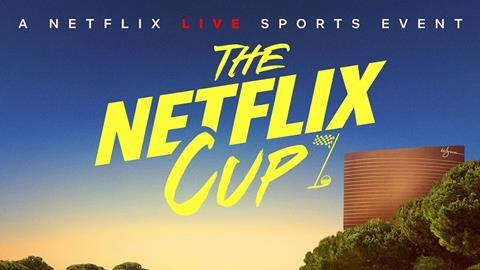Alexey Milovanov, global executive expert known for work at the last two men’s World Cups, doesn’t believe the event will be a success

The Netflix Cup is the streaming giant’s latest attempt to enter the lucrative live sports market by pitting famous golfers against F1 drivers in a live cross-sport event.
I appreciate the commercial potential, but I can’t see the competition lasting beyond the first instalment. Why? Because hybrid sports events need more than a high-profile backer and a gimmicky format to capture the imagination of sports fans. It’s been packaged up as a sports event but marketed as a movie.
Yes, the streamer’s F1 docuseries Drive To Survive was successful. But mashing F1 with an entirely different sport together for the sake of novelty is destined to fail.
First and foremost, Netflix has overlooked the innate connections fans have to their favourite athletes and teams, not to mention the history and traditions that make sport so special. Fans prefer to engage with their favourite sports, and most importantly, what makes them unique. This brings a sense of community that hybrid events could never replicate.
Golfing outsiders have tried to add an element of novelty into sport before in the form of LIV Golf, and we all know how (un)popular that is with golf purists. No wonder it failed to land a flagship broadcast partner in the UK.
F1’s unique appeal lies in the high-speed rocket ships that the likes of Max Verstappen zoom around the track at over 220 MPH, not the golf carts drivers will be crammed into for the Netflix Cup. The event might be a light-hearted, low-stakes concept to attract new fans, but Netflix subscribers would sooner be watching Friends for light entertainment. Offering a half-baked alternative risks cheapening the F1 brand at best, and undermining the integrity of the sport at worst.
We’ve seen other entertainment giants try their hand at hybrid sports events. Warner Bros’ own exhibition celebrity sports series The Match saw sports stars like Stephen Curry take on professional golfers head-to-head. The result? a 50% drop-off in viewership in its second season.
The oversaturation of the streaming and live sports markets poses a new challenge entirely. Streaming in the US equated to over 19mn years last year, up 27% from 2021. Despite this, subscription numbers are falling, signalling an emphatic end to the streaming boom we saw during Covid. Sports fans don’t exactly lack choice, and sports broadcasters are having to fight harder than ever to compete with new broadcasters and more sports events coming into the market.
We need to maintain a healthy sports ecosystem, and diluting the market isn’t the way to do this. The over-commercialisation of sports risks fan fatigue and individual sports will suffer as a result.
It goes without saying there are lucrative opportunities for streaming platforms to penetrate the live sports market, so it’s no surprise Netflix wants a bite of the cherry. Amazon has exclusive rights to a handful of Premier League matches and ATP and WTA tennis tours, and Now/Sky Sports offer live sporting content.
But these platforms have followed a tried and tested model of broadcasting popular sports with extensive brand recognition and a global fanbase. Not a glorified go-kart race. If it’s not broken, don’t fix it.
What has worked for Netflix is its sports documentaries. Beckham, The Last Dance, and At Home With The Furys are just some examples. All smash hits that gave fans an unparalleled behind-the-scenes look into the sports they love. But most importantly, they celebrate the heritage of the sport. Can you really say the same with hybrid sports events?
The Netflix Cup will be a bit of fun. It will generate a laugh or two. It might even attract some viewers. But it will be the first and last edition we see. People watch their sporting heroes for drama, excitement, community, and atmosphere. They watch a sitcom for a few cheap laughs. Mixing the two is doomed to flop.

Alexey Milovanov is a global executive expert best known for his work at the 2018 FIFA World Cup in Russia and the 2022 FIFA World Cup in Qatar.




No comments yet